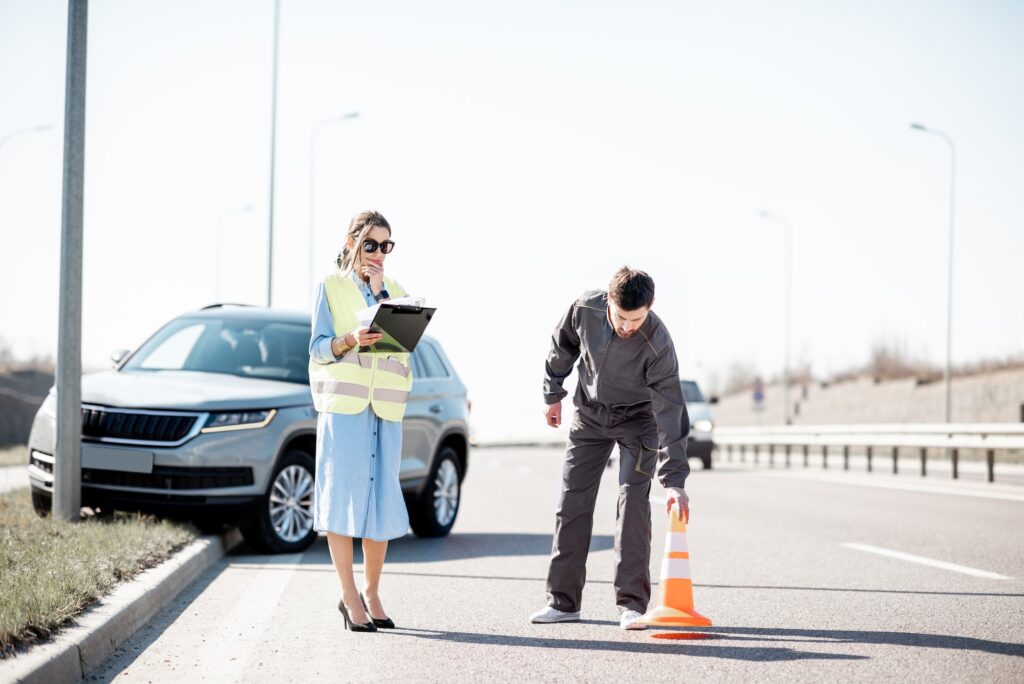Video footage evidence of an auto accident can strengthen your compensation claim. For example, you can use the footage to prove the defendant’s liability or defend the defendant’s counterclaim. Call a St. Louis car accident lawyer to help with the details. However, you must get the footage first. Below are some tips you can use to get such evidence.
Take Witnesses’ Contacts
Video Footage Comes From All Manner Of Sources. Cameras That Might Record A Car Accident Include:
- Cameras from handheld devices, such as cellphones
- Dashcam cameras from other road users
- Security cameras from nearby properties
- Police cameras, such as squad car dashcams or bodycams
Clearly, some of these are movable or mobile cameras that won’t stay near the accident scene. Take witnesses’ information immediately after the accident to increase your chances of getting relevant footage. For example, if a pedestrian records an accident and you don’t take their contact information, you might lose the footage forever.
Act Fast
Another tip is to act as fast as possible. The longer you delay after a car accident, the higher the risk of not getting the footage you need. For example, many recording devices have limited memory, so their owners have to delete old files to free up space for new recordings.
Secondly, cameras (such as surveillance cameras) are set up to automatically record over old footage after some time. According to hr.org, some surveillance cameras record over old footage after 72 hours or so. Thus, even a three-day delay is enough to make you lose such crucial evidence.

Investigate The Accident
You might not know that video footage evidence of your accident exists if you don’t investigate the accident. Ideally, you should get a professional, such as a private investigator or a lawyer, to handle the investigations. Many law firms also have contacts of private investigators they can use for such services.
Below Are Some Prospective Sources Of Video Evidence That A Private Investigator Will Check
- Social media pages that mention the accident
- Nearby businesses, both private and governmental, might have recorded the accident
- Witnesses, such as motorists or pedestrians, who might have recorded the accident
- Police on patrol near the scene of the crash
Another Advantage Of Using A Professional Is That They Will Know
- How to store the footage without alteration
- Which locations are likely to have video cameras
- Which organizations or government branches own the recording cameras
Thus, working with a professional will save valuable time.
How to Subpoena Video Footage
In the pursuit of justice after an auto accident, securing video evidence can be the linchpin of your case. However, sometimes obtaining this crucial footage requires more than a simple request. That’s where subpoenas come into play. Let’s delve into the process of subpoenaing video footage and why it’s essential:
Understanding the Vital Role of Subpoenas
Subpoenas are not mere legal formalities; they are powerful instruments in your quest for evidence. Think of them as keys to unlocking vital footage that could make or break your case.
Recognizing the Need for a Subpoena
In some cases, parties may be unwilling to provide video footage voluntarily. When faced with resistance, a subpoena becomes necessary. It serves as a legal mandate, compelling reluctant parties to produce the evidence you need.
Launching the Subpoena Process with Legal Support
Navigating the legal landscape surrounding subpoenas can be daunting. That’s why enlisting the support of legal counsel is crucial. Your attorney will guide you through the process, ensuring that all steps are taken correctly and efficiently.
Delivering the Subpoena to the Right Hands
Once the subpoena is drafted, it must be delivered to the appropriate parties. Whether it’s law enforcement agencies or private entities holding the footage, serving the subpoena is a critical step. This ensures that the necessary parties are aware of their obligation to provide the requested evidence.
Guaranteeing Adherence to Legal Standards and Timelines
Compliance with legal requirements is paramount throughout the subpoena process. From drafting to delivery, ensuring adherence to legal standards and timelines is essential for success. Missing deadlines or failing to meet legal criteria could jeopardize your chances of obtaining the evidence you need.
Understanding how to subpoena video footage is essential for bolstering your auto accident claim. By grasping the importance of subpoenas, recognizing when they are necessary, seeking legal guidance, delivering subpoenas effectively, and adhering to legal standards, you can maximize your chances of obtaining the evidence needed to strengthen your case.
Use Proper Channels For Your Request
Merely knowing that trimmed video footage exists is not enough — you must get the footage for it to help with your claim. Unfortunately, getting accident videos, especially the trimmed ones, is not always a straightforward affair. In most cases, owners of such videos have no obligation to hand them over to you.
For one, some government bodies have bureaucratic procedures that you must follow to the letter to get recorded files. Some private organizations might be reluctant to spend their resources (time and labor) to handle your requests.
Here Again, An Experienced Lawyer Can Help You Get The Desired Footage. Your Lawyer
- Will know proper channels to use for their requests
- Might have contacts they can use to speed up the requests
- May get a subpoena to force the relevant parties to hand over the videos
Thus, you should hire a lawyer as soon as possible to handle your auto accident claim.
Hopefully, you will get the evidence you need to get the settlement you deserve. Cantor Injury Law has practiced injury law since 1993. We have the experience, skills, and resources to handle all manner of injury cases. Contact us for a free initial consultation to determine the best way to proceed with your case. We look forward to working with you.
